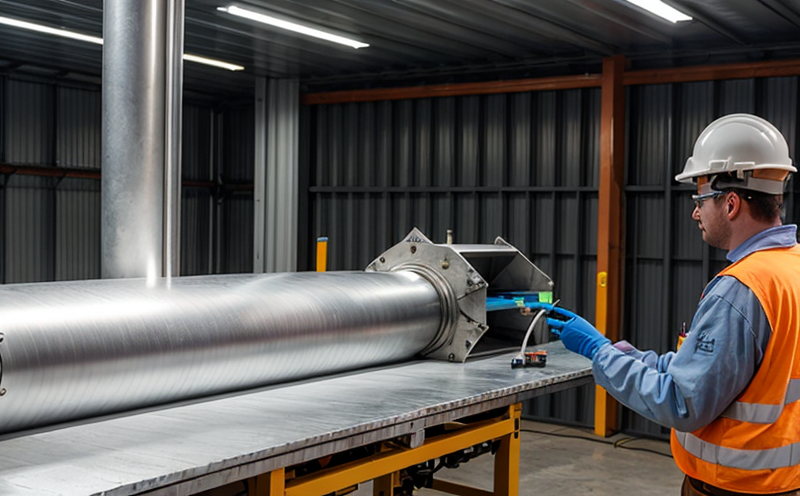ISO 2039 Hardness Testing of Plastics for Renewable Applications
The ISO 2039 hardness test is a critical standard used to measure the resistance of plastic materials under indentation. This method ensures that plastics used in renewable energy applications meet the necessary mechanical performance requirements, thus enhancing the reliability and longevity of these components.
Renewable energy systems, such as wind turbines, solar panels, and storage batteries, often rely on robust plastic components for various functions including insulation, structural integrity, and corrosion resistance. Ensuring that these materials meet the stringent criteria outlined in ISO 2039 is essential to prevent failures that could compromise system performance or safety.
The test involves applying a known force with a specified indenter onto the surface of the plastic specimen for a fixed duration. The depth of penetration is measured, and this value is used to calculate the hardness according to the standard formula. This process allows for accurate comparison between different materials or samples under consistent conditions.
The choice of indenter geometry (e.g., spherical, conical) affects the test results, reflecting the material’s behavior at various scales. For instance, a spherical indenter is more suitable for testing large-scale components where surface irregularities might be significant, while smaller specimens may benefit from a cone-shaped indenter.
Compliance with ISO 2039 not only ensures that materials are robust enough to withstand operational stresses but also facilitates seamless integration into larger systems. This is particularly important in renewable energy sectors where the lifespan of components can significantly impact overall system efficiency and sustainability.
A key challenge in implementing this test lies in maintaining consistent environmental conditions during testing, as variations in temperature or humidity could affect results. Therefore, laboratories performing these tests must adhere strictly to prescribed procedures and use calibrated equipment to ensure accurate measurements.
Real-world applications of ISO 2039 hardness testing include validating the performance of thermoplastics used in wind turbine blades, ensuring that they can withstand high-speed impacts without cracking or deforming. Similarly, for solar panel frames made from polyvinyl chloride (PVC), this test helps assess their durability against UV radiation and temperature fluctuations.
Understanding material properties through rigorous testing is crucial for continuous improvement in renewable energy technologies. By adhering to international standards like ISO 2039, manufacturers can enhance product quality while meeting regulatory requirements, thereby contributing positively to sustainable development goals.
Why It Matters
The importance of ISO 2039 hardness testing cannot be overstated when it comes to renewable energy applications. Ensuring that plastic components possess the appropriate level of hardness is vital for several reasons:
- Increased Reliability: Hardness tests help identify materials capable of withstanding harsh environmental conditions, thereby increasing the reliability of renewable energy systems.
- Safety Enhancements: Robust plastic components reduce the risk of failures that could lead to accidents or malfunctions in critical applications like wind turbines and solar panels.
- Cost Efficiency: By selecting high-quality materials upfront, potential repair costs associated with failed parts are minimized, leading to long-term cost savings for manufacturers.
- Sustainability Goals: Ensuring that renewable energy systems operate efficiently contributes significantly towards meeting global sustainability objectives. Reliable components play a pivotal role in achieving these goals.
Eurolab Advantages
At Eurolab, we pride ourselves on offering comprehensive and accurate ISO 2039 hardness testing services tailored specifically for renewable energy applications. Our team of experts is dedicated to providing reliable results that exceed industry expectations.
- Precision Calibration: We employ state-of-the-art equipment calibrated according to international standards, ensuring consistent and precise test outcomes.
- Experienced Staff: Our skilled technicians are trained in the latest testing methodologies, allowing us to deliver accurate assessments even for complex materials.
- Comprehensive Reporting: Detailed reports accompany each test result, providing clients with all necessary information to make informed decisions regarding their projects.
- Regulatory Compliance: Our services are designed to meet all relevant regulatory requirements, helping our clients navigate the complexities of compliance effortlessly.
Quality and Reliability Assurance
To maintain high standards in ISO 2039 hardness testing, Eurolab adheres strictly to established procedures. Below are some key practices:
- Environmental Control: Maintaining stable temperature and humidity levels during testing ensures consistent results.
- Equipment Calibration: Regular calibration of instruments guarantees accuracy in measurements.
- Data Validation: Multiple checks are performed to verify the integrity and reliability of test data.
- Continuous Training: Our staff regularly attends workshops and training sessions to stay updated on advancements in testing techniques.





